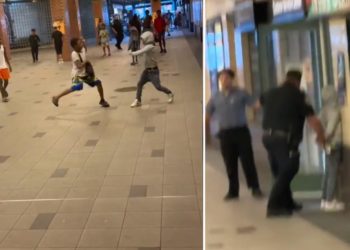These days, I can’t stop thinking about the hazy morning in June 1990, when I walked all the way up our narrow mountain road in Santa Barbara, Calif., past exhausted firemen, past houses reduced to cinders and the skeletons of abandoned cars, until I reached the spot in the hills where our home was a pile of debris.
The previous evening, I’d gone upstairs to find our house encircled by 70-foot flames, whipped on by fast-moving winds. I’d jumped into a car, carrying nothing but my mother’s aging cat, but when we reached the bottom of our driveway I realized we were trapped.
For three hours we were caught in the middle of the Painted Cave Fire, saved only by a good Samaritan who had driven up to be of help in a water truck and pointed a thin hose at each roar of orange as it approached.
His selflessness kept us alive until we could evacuate, and at evening’s end, I had as much to be grateful for as to regret. Yet nothing could ease the sorrow of calling my mother, who was away in Florida, to tell her that every last memento of her almost 60 years — every photo and keepsake and lecture note and necklace — was gone.
“There must be something,” she’d said.
“It’s gone, all gone.”
“Just find what you can.”
Climbing up the road a few hours later, I confirmed that every gleaming amenity in our newly remodeled house was ash.
Half a lifetime later, I see that fire as a turning point, not only a disaster. Though at the time it was one of the worst fires in California history, we had heroic firefighters to thank for the fact that almost everyone survived. And as we began, very slowly, to reconstruct our lives, I realized I could begin to live more simply, as I’d always wished to do. Coming so close to losing my life made losing my possessions a little easier to bear.
There was no escaping some memories. Reduced to nothing but a newly bought toothbrush, I could still feel myself sitting, helpless, in the car, watching the flames erase all my handwritten notes for my next three books and my next several years of writing — and with them, many of my lifelong dreams of being a writer. My mother felt she had lost her entire past and, in the autumn of her life, could not easily think of fresh beginnings.
As in the wake of a death, we then faced an Everest of paperwork. After we moved into a small apartment, it took us three and a half years before we could occupy a new home — much sturdier than the one we’d lost, but thunderously empty.
Yet when our insurance company offered to replace our belongings, I noticed that I could live happily without most of the books and clothes and pieces of furniture I’d accumulated. In some ways I felt lighter than before. I called my editor to tell him that all the books I’d promised him were no longer possible; after commiserating, he observed that perhaps I could write from memory and imagination now, from emotion, sources much deeper than my notes.
As a lifelong traveler, I felt in my bones how home is not where you happen to live so much as what lives inside you: my mother, my wife-to-be, the songs and stories that still played inside my head. I still had my words, the poems I’d learned from, my inner savings account.
Years later a friend would tell me that the Sufis say that you truly possess only what you cannot lose in a shipwreck.
I flew last week into Santa Barbara, toward my late mother’s rebuilt home, just as fires were shockingly remaking lives around Los Angeles, two hours to the south. Our home, as so often, was pitch-black: Our electricity had been turned off to protect us from the threat of another conflagration. Through the night, working by the light of a small lantern, I heard from friends not far away who had lost their homes or were staying in hotels, not sure what kind of life they had to return to.
The fires that were an occasional threat when our house burned down are regular visitors now to California and across the West. Insurance policies in these parts are ever harder to acquire. And though many of us in Southern California know we’re fortunate compared with most of our global neighbors facing environmental disaster, we also sense we’re living where humans are probably not meant to live, and the fire, flood and mudslide warnings will only become more frequent.
In the months after the fire, I’d noticed that some of my neighbors remained captive to what they had lost, while others were thinking more about how they could begin anew. It’s a matter of circumstances and temperament, perhaps, but the world’s increasing threats mean that we have to learn to ground ourselves amid the constant reminders of impermanence.
I truly hope my devastated friends around Los Angeles can look forward, toward what they can change, more than backward, to what they can’t. That they can cherish what they still have, which so often we take for granted, and which is all we have to sustain us. And that they may discover in time what I have found: that our lives are determined less by what happens to us than by what we make of what happens to us.
My heart grieves for all those who have suffered so much in recent catastrophes, yet if it deepens our sense of proportion, and of community — we’ll always be at the mercy of the winds, the heavens — then maybe something, somewhere, can be gained.
The post I Lost Everything in a California Fire. It Changed How I Lived. appeared first on New York Times.




